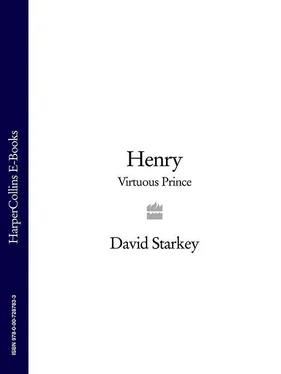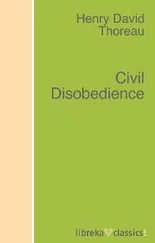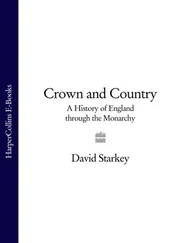Was the young Henry a sort of aberration? Was he ‘really’ what he was to be in old age? Or was it all down to changing circumstances?
It can be put rather differently. Should we read him backwards, from what he became? Or forwards, from what he was?
Really there should be no question which. Modern scholarship is resolute that events must be read forward. It recognizes that the actors at the time were not gifted with foresight and it is clear that historians must not impose their own knowledge of what was to come on contemporaries who were necessarily ignorant of it. To do so is teleology. And to do so persistently is the ultimate sin of Whiggishness.
And yet. The truth is that the old Henry – with the horror, the soap opera and the drama – is immediately fascinating in a way that the young Henry is not. The young Henry is too conventional, too much a man of his own time. Or indeed of the age before his own. If he had been successful, he would have been a triumphant late-medieval king, a Henry V redivivus ; as he failed, which he largely did, he merely represents a sort of fag-end.
So historians are constantly hunting for signs of what was to come. For heterodoxy. For scepticism about the externals of faith. For doubts about his first marriage. For high views of royal power and low ones of papal authority.
It is all, it seems to me, a wild-goose chase.
The Henry who swears unquestioningly the traditional coronation oath of an English king in 1509 is not the same as the man who revises it, line-by-line and word-by-word, twenty-odd years later. The man who went on pilgrimage – whether to Our Lady of Walsingham in Norfolk in 1511 to give thanks for the birth of his son or to Master John Shorne at North Marston in Buckingham in gratitude for his recovery from the sweating sickness in 1521 – is not the same as the king who demolishes Becket’s shrine and every other place of pilgrimage in England in the 1530s. Nor is the man who would write the Assertio Septem Sacramentorum in 1521 – with its forceful argument that papal power was historically rooted, necessary for the unity of the church and the ultimate guarantor of uniformity of faith – the same as the man who, less than a decade later, rejected each of those propositions in turn to substitute his own kingly authority over the church for that of the pope.
In short, Henry’s reformation – the king’s reformation as it has recently and rightly been called – begins in 1527, and not in 1509 or 1515. True, in the latter year Henry (who liked rolling phrases) delivers himself of a ringing declaration: ‘By the ordinance and sufferance of God, we are king of England, and kings of England in time past have never had any superior but God only.’
Ringing indeed. But Henry is saying no more than the most pious of his medieval ancestors, though he may be saying it rather better. For in 1515 the ‘imperial’ authority of the English crown meant only that it had no temporal superior; it did not mean that it was superior to the spiritual power of the church. This of course is what Henry – the ageing Henry – made it mean in the 1530s. But the latter proposition is not ‘implicit’ in the former. Nor is it ‘latent’, ‘prefigured’ or whatever other Whiggish weasel-words historians choose to use to mask their teleology.
On the contrary, far from being ‘implicit’, it took a revolution – and one made in blood – to achieve it.
But things have an end as well as a beginning. And it is equally clear that the Wars of the Roses ended with Henry’s accession in 1509. They had not ended with his father’s victory at Bosworth in 1485. Or with his parents’ marriage the following year. Or with Lincoln’s defeat at Stoke in 1487. Or with the crushing of the Cornish rebels in 1497 and the subsequent capture of Perkin Warbeck. They had not even ended with the surrender of Suffolk, the last pretender, to Henry VII in 1506.
But they did end when Henry came to the throne. And that they did so was personally and directly due to him. His own conjoined descent from York as well Lancaster was important. But so too were his decisions – which had been conditioned by his repeated youthful experiences of pretenders and plots and destructive insecurities – to let bygones be bygones, to knit up old wounds and to restore the surviving members of the house of York (always excepting the inveterate traitor Suffolk and his siblings) to their wealth and dignities.
And, what has been insufficiently appreciated, it worked. The spectre of dynastic conflict, which had stalked England for the last fifty years, is suddenly laid. And it does not walk again. There are later dynastic problems of course. But they are not about York and Lancaster. They are about religion. Some of the Yorkists that the young Henry had restored are involved. But not as Yorkists. Instead, they rebel – or rather dream of rebelling – against him because they disagree with his religious policies.
Between these ends and beginnings, Henry’s is a life which naturally falls in halves. Hence my decision to write it in two volumes. This first volume is intended to establish the authenticity and integrity of the young Henry; the second will be to show what he became and why.
Throughout the subject and focus is Henry – not his wives, his ministers, his courtiers or his children. All of course appear. And I have written at length about most of them elsewhere. Here, however, they only figure in so far as they help to explain Henry. And the same goes for everything else. I have drawn on an enormous variety of sources, from music and poetry to theology, architecture and marine engineering. But there are no separate studies of these subjects. They are there – as indeed are the politics, the diplomacy, the finance and the administration – only because they illuminate Henry.
This is, after all, a biography; it is not a life and times or, still less, a history of the reign.
I have incurred many debts in writing and researching this book: to my old friend Margaret Condon for allowing me to use her unpublished ‘Itinerary’ of Henry VII; to Sean Cunningham and Adrian Ailes of The National Archives for checking references and documents; to Adrian Ailes for his further help with heraldry; to Andrea Clarke of the British Library for checking documents and references there and for translating Spanish; to Steven Gunn of Merton College, Oxford for blazing a trail through the obscure last years of Henry VII which the rest of us gratefully follow; to the staff of the London Library who have made it possible for me to write this book here in Kent; to my editor, Arabella Pike and my agent, Peter Robinson for their encouragement, criticism and support, and, above all, to my partner, James Brown, who as usual has read and commented on each chapter as it was written and – not least – put up with me while I was writing them.
The Red House
Barham, near Canterbury
August 2008
1 HENRY Virtuous Prince DAVID STARKEY

ENTRY INTO THE WORLD HENRY Virtuous Prince DAVID STARKEY
HENRY, SON OF HENRY VII and Elizabeth of York, was born on 28 June 1491 at Greenwich, the royal manor on the south bank of the Thames some five miles to the east of London. He was their third child and second son, and he was christened in the adjacent church of the Friars Observant by Richard Foxe, then bishop of Exeter, lord privy seal and one of his father’s leading ministers. 1 1 . LP IV iii, 5791. 2 . K. Staniland, ‘The Royal Entry into the World’, in D. Williams, ed., England in the Fifteenth Century: Proceedings of the 1986 Harlaxton Symposium (Woodbridge, 1987), 299, n. 8; AR I, 304–6, 333–8. Collectanea IV, 179–84. The Ryalle Book itself is discussed by D. Starkey, ‘Henry VI’s Old Blue Gown: The English Court under the Lancastrians and Yorkists’, The Court Historian 4 (1999), 1–28. 3 . TNA: E 404/81/1 (1 September 1491). 4 . For instance, in The Great Chronicle , 248, the entry concerning Henry’s birth is not only an insertion, made long after the event (‘This year on Saint Peter’s Day in June was borne Henry, duke of York, the king’s second son which reigned after him’), it also appears under the wrong year. The ‘Beaufort Hours’, 279, notes Henry’s birth only with the bare date; in contrast, for both Arthur and Margaret, the place and the exact hour of birth are given as well.
Читать дальше













